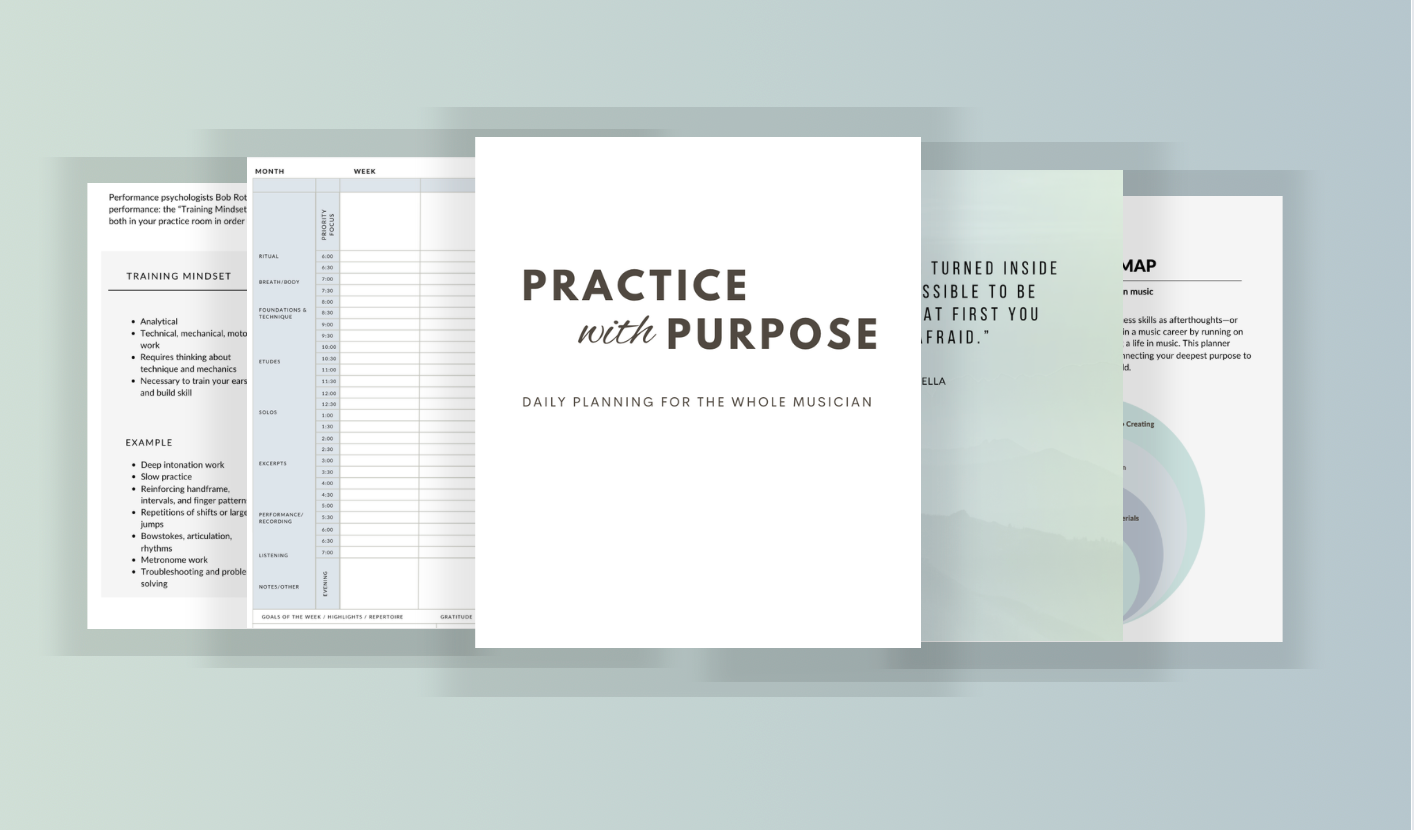How to Succeed (and be Happy) in an Orchestral or Ensemble Career

Why did the NY Times report that musicians' job satisfaction ranked below that of federal prison guards? Is it because as an orchestral or band musician, you don't get to choose what you play, when and how you play it? Or that you have little access to personal growth and advancement? It's an important question to ask yourself and a conversation we need to have more often!
It's vital for you to find a way to (and frankly with any chosen profession) a healthy intersection of self-esteem, autonomy, creativity, and being valued.
Here are three of the big ideas we discussed....
1. Success does not equal happiness.
What does success look like to you? As you think about this, don't answer by equating success to happiness. Success can look like achieving goals, but it's a myth that achieving goals leads to happiness. We talked about:
- the (very real and necessary) aspect of needing income, of having the peace of mind financial stability brings
- the importance of knowing thyself, what makes you tick, what makes the hours just fly by, what floats your boat
2. The struggle is real.
There will be times when you will struggle with needing to "prove" yourself when you are uncertain if you're fitting into the section if you're able to adjust quickly to what the conductor asks for if you are even allowed to mark in bowings (especially if your stand partner isn't marking anything)!
Struggle is a form of processing, and it's a form of preparation. It means you're aware, and are navigating the right path forward. Some ways to move through struggle:
- Cultivate interpersonal relationships & engage in discussion
- Ask for help. Ask if you're unsure.
- Lean into, and meet the challenge.
- Stay open and approach the situation with an upbeat attitude!
- Remember during periods of struggle, that you are laying the groundwork for your future success.
Yesterday I dared to struggle. Today I dare to win. — Bernadette Devlin
3. Managing stressors on the orchestral stage
There are going to be stressors on the job. Whether it's internal, like performance anxiety, pressure you put on yourself, fear of physical injury or fear of imperfection, or external, like conflicts with colleagues, or pressure from another musician, you'll need to find tools to deal with the stressors and stay balanced. Here are a few ideas that could help:
- Be prepared. You play at a high enough level to have gotten the job, stay on your game! Score study, listening, and marking your part are ways to come prepared for the rehearsals.
- Define/create your role. It's important to know you contribute. Are you a versatile auxiliary or assistant player? Are you a section player?
- Know what you need to do to stay balanced. Are you a player who needs to stretch and do mobility exercises daily? Someone who needs to warm up properly before each rehearsal?
- Create value, or contribute off your instrument! You can serve on musician's committees, engage with the community, teach, play concerts, or create projects outside of work.
It's easy to slide into job dissatisfaction if you don't mind your mindset. Be generous, be grateful, and find positive outlets for your creative energy!
These three ideas aren't comprehensive, but we hope it's a starting point for you in your investigation into how you approach your job. And this goes for any job, not just one that takes place on stage!


